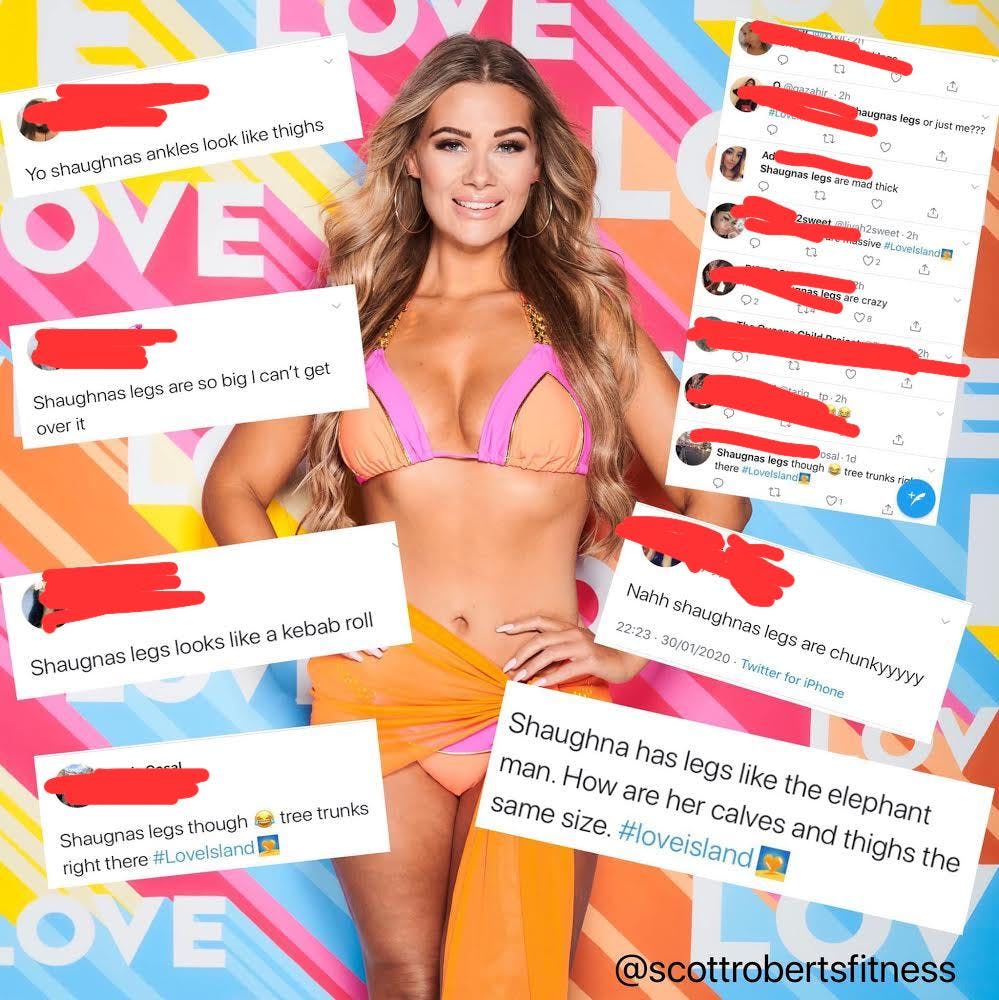2020-04-08
Why it’s time to make social media great again
A study by Michigan State University found that young people aged 12-15 who are heavy social media users are more likely to report mental health issues like depression, anxiety and loneliness, as well as aggression and anti-social behavior. This is compared to teenagers who don’t use social media (source: Michigan State University).
This isn’t surprising. When all young people are seeing online is body-shaming, trolling and unrealistic depictions of reality, what chance do they have?

Losing control
We are more connected now than ever before, thanks to social media. These channels give us a platform to talk to anyone we want. Whenever we want. And however we want.
It feels like we’ve lost all sense of responsibility. Like a car windscreen, we feel safe behind our digital screen. It grants us the security to become warriors of the keyboard (as well as the road).
Be it an outlet for our rage, or purely an endless hunt for a dopamine hit, social media gives us it in abundance. And we don’t stop to consider how damaging sharing our opinions could be.
There is something very serious going on. The tragic passing of Caroline Flack at the beginning of the year and last year’s documentary exploring the targeted abuse Jessy from Little Mix received on social media are symptoms of a growing problem.
The media, management, police forces, networks, production teams and the CPS were scrutinised and deemed somewhat responsible for not protecting Caroline Flack’s mental health during a tough ‘news time’ for the celebrity Love Islander presenter. But none of these outlets were solely responsible. As well during Covid times, users shaming politicians and calling these people out and attacking them is just as damaging. Even if they’re media trained and ‘used to it’ doesn’t mean it’s ok. We’ve lost a sense of social responsibility. Humans created a beast. And this now needs to be tamed.
Taking action
A number of different UK laws outlaw hate speech. Among them is Section 4 of the Public Order Act 1986 (POA), which makes it an offence for a person to use “threatening, abusive or insulting words or behaviour that causes, or is likely to cause, another person harassment, alarm or distress”. This law has been revised over the years to include language that is deemed to incite “racial and religious hatred”, as well as “hatred on the grounds of sexual orientation” and language that “encourages terrorism”.
The logical place to start tackling the problem of hate speech on social media is the platforms themselves. They could look at creating more advanced machine learning technology to detect abusive messaging, smart enough to detect nuances and shut it down in seconds.
Facebook amongst other platforms has technology that “flags” hate content rapidly, with the platform removing 83% of terrorist posts within the first hour of them being shared.
Twitter also has a report function to flag threats of violence. And they’re working on combating abuse motivated by hatred, prejudice or intolerance, particularly abuse that seeks to silence the voices of those who have been marginalized.
But Facebook says that the human element still needs to play a key role in identifying abusive posts.
We’ve vastly improved the policing of content. Germany is leading the way by imposing financial penalties on major social media companies if they failed to reduce the volume of abusive content on their platforms. But what does it mean for speech that isolates LGBTQ+, ethnic or religious groups, or vulnerable people and children using social media.
The UK government could invest in specialist teams to monitor this conversation and create social media laws around the prosecution for harassment, rolling out penalties similar to our German neighbours – but it’s extremely costly, timely and resource-heavy and probably not (unfortunately) a priority for our tax budgets.
The price of free expression
Twitter’s mission is to give everyone the power to create and share ideas and information, and to express their opinions and beliefs without barriers. They believe that everyone has a voice and the right to use it – their role is to serve the public conversation, which requires representation of a diverse range of perspectives.
But free speech should not be confused with hate speech. Free speech is the principle of sharing an opinion that isn’t directly impacting a person’s mental health.
But responsibility to shut down such content on social media shouldn’t just sit with specialist teams and machine learning technology within Facebook, Twitter, Snapchat, Tik Tok etc. Of course, they have a duty of care to make sure their platforms are safe, regulated and our data is kept private. But the real responsibility sits within us.
Actions matter
In my opinion, no law or machine can deliver the same level of sentiment that enforces change, creates impact and shifts perception. The power is in the people. We’ve backed movements like #BloodNormal #ThisGirlCan #BlackLivesMatter – so let’s do it again, let’s step up and silence this conversation without encouraging mob culture.
#CarolinesLaw trended on Twitter, encouraging news outlets not to publish information about celebrities that appears to be false. It also encouraged people not to buy certain newspapers. The hashtag will stay on Twitter and is still creating conversation, but unfortunately, over time, it will become another short lived trend.
So, how do we keep the momentum up?
We could start (and something which I think we’re quite good at) with brands and people getting on board – lobbying, petitioning and creating social content that supports the shutting down of hate speech but it shouldn’t just stop there.
What if we introduce a movement that is simple, doesn’t cost anything but encourages people to #BlockIt? Every defamatory or vulgar comment that exists on social, whether it be on LinkedIn, Twitter, Instagram or any other social platform, we unfollow and shut down that user. It’s not aggressive nor is it encouraging mob mentality, it’s a simple silence. It prevents users from reacting, which in fact is equally as damaging. It costs nothing and doesn’t involve 3rd parties. Instead, it puts the onus back on us as individuals to say no.
Yes you can report things to Instagram, LinkedIn and other social platforms and the content sometimes gets taken down but it doesn’t stop users posting again and again and again. If we all take a conscious action to rid nasty comments and slur, we are, as individuals, distinguishing between hate speech and free speech.
The more people that get behind an initiative (celebrities, media, influencers) like this, the more we’re preventing the conversation from sitting within the public domain. People love supporting causes for change – #ClapForCarers #MeToo #LoveWins #BlackLivesMatter – so let’s do it again. Let’s make social media great again. Unfollow these people who share derogatory comments, take away the power of reach. It will soon become apparent that these voices are no longer acceptable or even entertained on platforms.
The #BlackLivesMatter hashtag has been used nearly 30 million times on Twitter – an average of 17,003 times per day, creating a consistent presence for people to share their thoughts and opinions – so we have the power to do this. Social Media ‘movements’ have helped people feel good about the skin they’re in. The internet has made trans people more visible, helping create a community, normalising diversity. I saw a video on Twitter of a Transgender male seeing his chest surgery for the first time, it was beautiful. It has thousands of likes and RTs and hundreds of positive comments.
Coming together to drive change
As a Social Media Trainer, an advocate for the use of the channels for business, I want to be clear that I’m not saying social media needs switching off. I’m talking about how we can switch off hate speech and protect people, encourage them to become more responsible for their voice and actions. Educate them to consider the impact of their words both positive and negative.
Social media is a fantastic platform for connecting people and helping bring about change, so we need to start putting it into practice around encouraging people to #BlockIt. We’ve created Greta, saved more animals this year through the Vegan anonymous voices group and we’ve all come together to help raise money for the NHS during these hard times – so let’s not forget about how a community can pull through and dramatically shift change.
